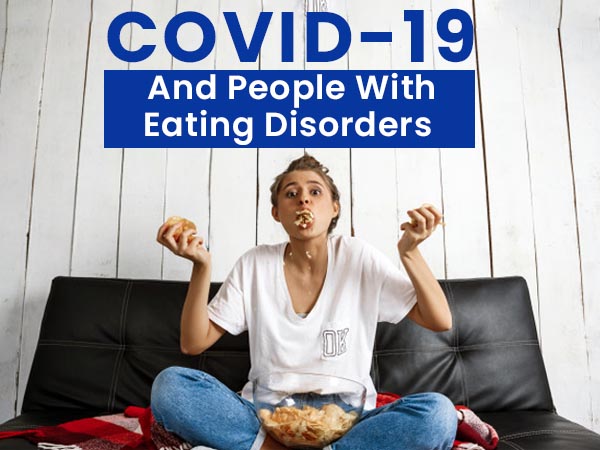Just In
- 1 hr ago

- 2 hrs ago

- 11 hrs ago

- 12 hrs ago

Don't Miss
- Sports
 KKR vs RR Memes: Fans Take Potshot at KKR for Conceding Match after Scoring 223; Praises Jos Buttler's Knock
KKR vs RR Memes: Fans Take Potshot at KKR for Conceding Match after Scoring 223; Praises Jos Buttler's Knock - Finance
 Rs 7/Share Dividend: May 3 Fixed As Record Date; Buy The Large Cap Stock To Be Eligible?
Rs 7/Share Dividend: May 3 Fixed As Record Date; Buy The Large Cap Stock To Be Eligible? - Movies
 Bade Miyan Chote Miyan Vs Maidaan Box Office Collection Day 6: Akshay Kumar BEATS Ajay Devgn. Margin Is...
Bade Miyan Chote Miyan Vs Maidaan Box Office Collection Day 6: Akshay Kumar BEATS Ajay Devgn. Margin Is... - News
 UAE Weather Report: Floods Hit Dubai, 18 Dead; Govt. Shuts Schools, Colleges
UAE Weather Report: Floods Hit Dubai, 18 Dead; Govt. Shuts Schools, Colleges - Education
 UPSC Success Story: An IITian, A Government Job Holder at Railways, Quit the Job and Emerged as an IAS
UPSC Success Story: An IITian, A Government Job Holder at Railways, Quit the Job and Emerged as an IAS - Automobiles
 Jeep Compass Gets More Powerful 268.3bhp Turbo Petrol Engine – Check Out All The Details Here
Jeep Compass Gets More Powerful 268.3bhp Turbo Petrol Engine – Check Out All The Details Here - Technology
 Redmi Pad SE With 90Hz Display Launching on April 23 in India; Could Be Priced for Less Than Rs 20,000
Redmi Pad SE With 90Hz Display Launching on April 23 in India; Could Be Priced for Less Than Rs 20,000 - Travel
 From Coconut Breaking on Head to Men Dressing as Women: 12 Unique Indian Rituals Explored
From Coconut Breaking on Head to Men Dressing as Women: 12 Unique Indian Rituals Explored
COVID-19: Why Is Binge-Eating Disorder A Health Threat During The Lockdown?
The COVID-19 lockdown has caused several psychological impacts on people. The negative effect of quarantine and restrictions such as stress, depression, confusion, post-traumatic disorder, fear of infection, boredom, the fear of financial stability and stress about the health of loved ones have been noticed among people, according to research published in the Lancet.

On the other hand, people with eating disorders are struggling during the lockdown. The increased stress levels, fear of the infection and limited freedom have triggered harmful behaviours, keeping them away from habits which they often rely on for control. The isolation period has given enough opportunities to people for all the bad reasons and binge-eating is one among them. What exactly is binge-eating disorder?


What Is Binge-Eating Disorder?
Binge-eating disorder (BED) is a type of eating disorder which often goes unnoticed. Usually, it is a type of psychiatric disorder which people develop while dealing with other mental conditions such as anxiety and depression. [1]
People with binge-eating disorder often eat a lot of food due to emotional stress irrespective of being hungry. The main problem is not uncontrolled eating but the guilt that comes with overeating. Though for a time being they get relief, the feeling of guilt afterwards about their weight and body shape makes them even more embarrassed and stressful.
Several factors contribute to binge-eating. It can either be genetic, body dissatisfaction (due to working on fields that need good body image), emotional trauma (death or separation from loved ones) or psychological issues such as stress, anxiety or substance abuse. [2]

COVID-19 Lockdown And Binge-Eating Disorder
Under the COVID-19 lockdown, psychological distress such as fear and anxiety have occurred suddenly followed by depression and post-traumatic stress causing severe impact on people. It's been months since may people are isolated at their homes with minimal human interactions. This has caused stress among people and has fueled the binge-eating habits in people with eating disorders.
Binge-eating can be due to several reasons. A binge-eater may first restrict themselves from eating anything. They might starve or choose not to visit supermarkets to buy food items to control their urge to eat. But at last, they may end up hogging into a large amount of food and feel miserable about doing so.
The other reason could be stockpiling. Many binge-eaters may have stockpiled their food supply at first in the fear of unavailability. At first, they may hold themselves back from eating more food but end up eating them all while starving on the remaining days in that guilt. [3]
The other unreasonable thought that may worry a binge-eater is whether they are buying foods responsibly or in a selfish way, are they cooking so much that they feel satisfied or not enough. Some binge-eaters also have a strange way of feeling satisfied by seeing someone eating, thinking that the other people will get fat while they won't as they did not eat anything.

Is Binge-Eating Disorder Getting Worse?
Binge-eaters basically split their meals into many parts and eat small meals. In this way, they get the satisfaction of eating as well as keeping their diet under control. Since the lockdown has been in place, the daily routines of not only binge-eaters but others have changed completely. With no wakeup and sleep time, no timely meals and trips to gyms, people have become out of routine and opened the gates of unhealthy habits.
Another reason is the alarming news going around about COVID-19. People are finding it difficult to visit a doctor or go for their regular checkups. The thought of a lack of support from medical experts is also making it hard for people with their binge-eating disorder..

Ways To Manage Binge-Eating
- Understand why it's happening: First, sit down and evaluate the main cause behind binge-eating. Is it due to stress, boredom, hunger? Then try to separately deal with all situations that trigger your overeating.
- Avoid temptation: The visual appearance of the kitchen, having tempting food in sight such as candies, cookies or chips make you binge more frequently. Keep these food items out of sight or in fact, avoid buying them at all. [4]
- Prepare a meal schedule: If you used to have 3-4 four meals a day, maintain the same habit when you are at home. Plan separately for healthy snacks such as salad, oats or fruits which you may need during the breaks.
- Don't starve: Do not restrict yourself from eating food or eating just a few calories. This will make you eat even more at last. Also, it can harm you mentally as well as physically.
- Keep moving: The lockdown has affected gyming habits of many people. With a lack of equipment at home, don't avoid your physical regime. Perform yoga, meditation or some simple exercises at home. Maintain your activeness which will help you boost your mood and prevent stress eating.
- Stay hydrated: The best way to stay full is by drinking enough water and staying hydrated the whole day. A properly hydrated body is linked to low stress. [5] This will keep your mood happy, energy levels high and binge eating low.

-
 healthCOVID Surge In India: Do You Need A COVID-19 Booster Shot?
healthCOVID Surge In India: Do You Need A COVID-19 Booster Shot? -
 disorders cureCommon COVID Symptoms In Fully Vaccinated Individuals: What You Should Know
disorders cureCommon COVID Symptoms In Fully Vaccinated Individuals: What You Should Know -
 wellnessMild COVID Linked To Life-Threatening Blood Clots, Increased Risk Of Cardiovascular Disease; Study
wellnessMild COVID Linked To Life-Threatening Blood Clots, Increased Risk Of Cardiovascular Disease; Study -
 wellnessCOVID-19 Variants In India: New COVID Variant May Pose Threat To Elderly People
wellnessCOVID-19 Variants In India: New COVID Variant May Pose Threat To Elderly People -
 basicsCovid-19 Linked To Early Onset Of Periods: What You Need To Know
basicsCovid-19 Linked To Early Onset Of Periods: What You Need To Know -
 wellnessCOVID XBB Variants Of Omicron In India: What You Should Know
wellnessCOVID XBB Variants Of Omicron In India: What You Should Know -
 disorders cureNew Omicron Subvariant BQ.1 Detected In Maharashtra: What You Should Know
disorders cureNew Omicron Subvariant BQ.1 Detected In Maharashtra: What You Should Know -
 disorders cureOmicron BF.7 In India, Risk Of Fresh Wave During Diwali: What You Should Know
disorders cureOmicron BF.7 In India, Risk Of Fresh Wave During Diwali: What You Should Know -
 wellnessCoronavirus Residues Might Be Causing Long COVID: New Study
wellnessCoronavirus Residues Might Be Causing Long COVID: New Study -
 wellnessCentury-Old TB Vaccine Could Be Effective Against Covid-19 And Other Infections: New Study
wellnessCentury-Old TB Vaccine Could Be Effective Against Covid-19 And Other Infections: New Study -
 disorders cureCovid-19 Patients At Risk Of Neurological & Psychiatric Conditions Two Years After The Infection: New Study
disorders cureCovid-19 Patients At Risk Of Neurological & Psychiatric Conditions Two Years After The Infection: New Study -
 wellnessCOVID In Smokers: An Expert Explains
wellnessCOVID In Smokers: An Expert Explains


 Click it and Unblock the Notifications
Click it and Unblock the Notifications



